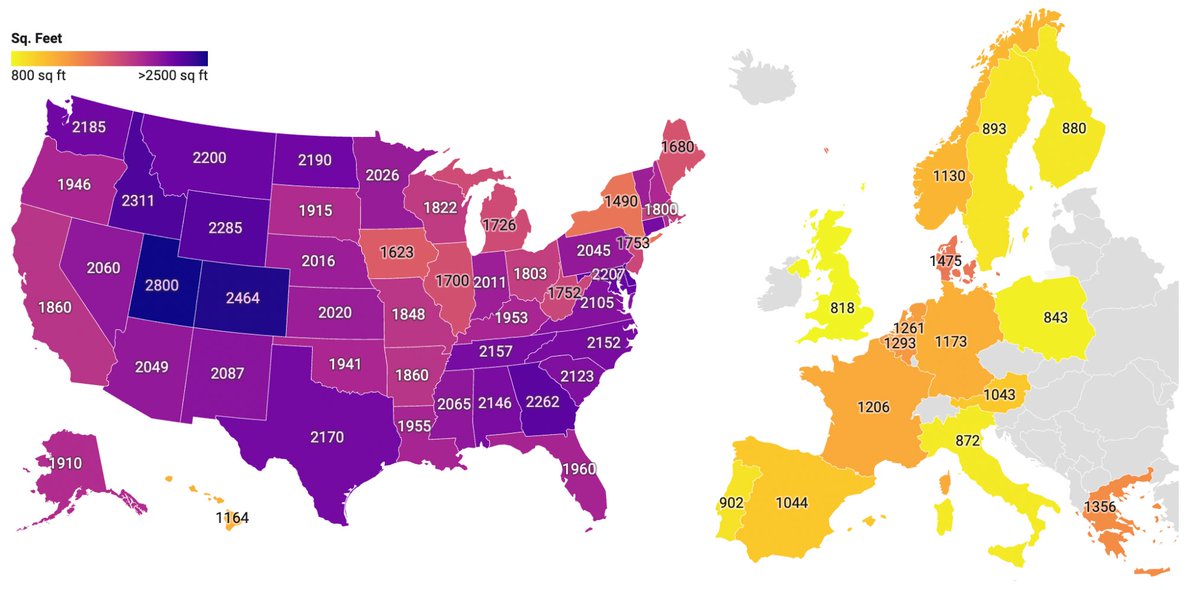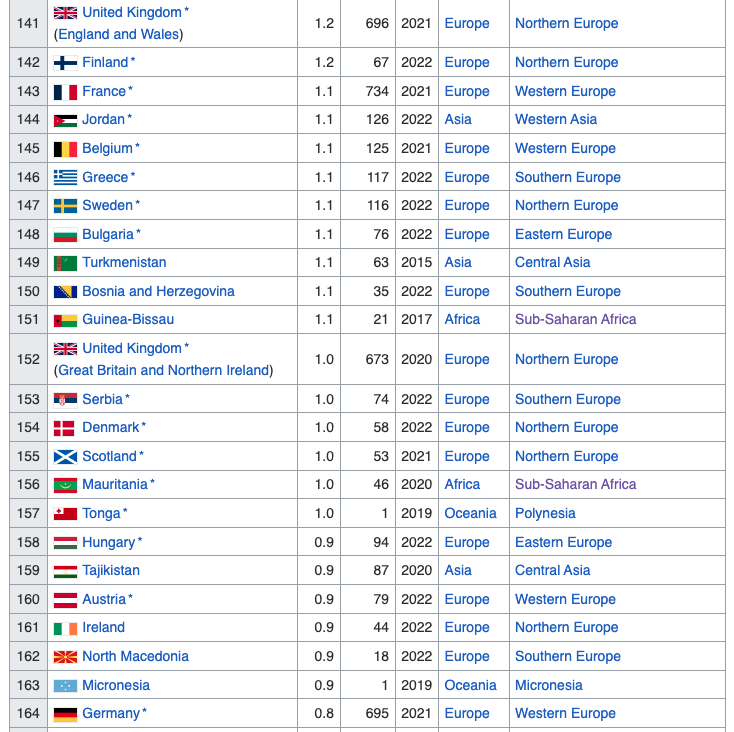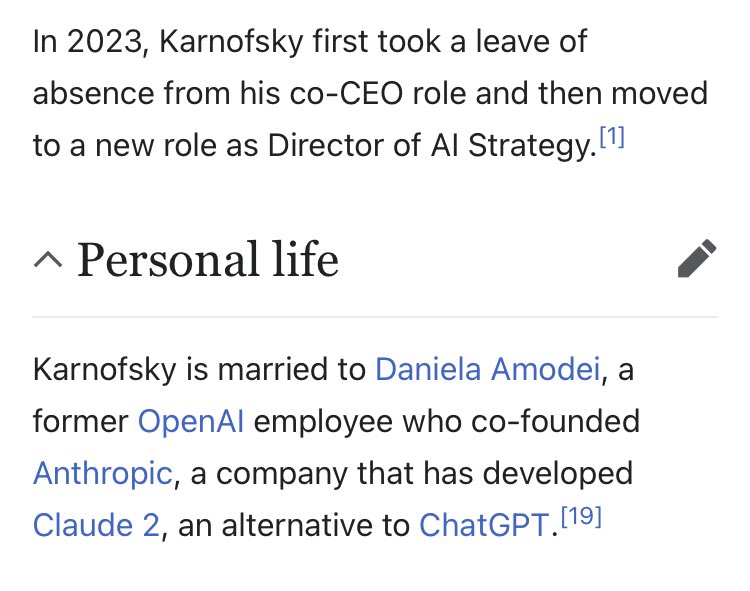Europeans aren't poor. They are illiquid. Much of Europe's wealth is stored in safe streets, nice parks, public transit, "free" healthcare, etc. which, it turns out, are too socially expensive for Americans to maintain. Americans take the money instead. The rest is only natural.
https://twitter.com/Altimor/status/1779739328106930505
The EU has triple the population density of the United States and doesn't believe in "suburbs," just "cities." Given how much more space there is in America, it's surprising that the numbers are so close, if anything. 

Americans would kill each other to live in Manhattan, which they treat like a utopia and pay exorbitant prices to live in because it has corner stores and you don't need to drive a car.
But that Manhattan-tier density is common for even small and unremarkable European cities.
But that Manhattan-tier density is common for even small and unremarkable European cities.
I've lived in every major U.S. city and all over Europe for many years each. What Europeans consider "unsafe" would be considered a national paragon of urban policing in America.
The homicide rates speak for themselves. America is 3-6x more dangerous.


The homicide rates speak for themselves. America is 3-6x more dangerous.
https://twitter.com/Pierre_Precieux/status/1779828887863619660


If, in a country, you can live like a Manhattanite for a tiny fraction of the cost and this lifestyle is considered unremarkable, then how is this evidence that Europeans are poor? Isn't it evidence that Europeans are fantastically wealthy?
I am not aware of any country that has squared the circle of "American-tier private financial compensation" with "European-tier public goods." I'm sure it's possible, somehow, but not without a political revolution.
In the meantime, Remote-Americans can just move to Europe.
In the meantime, Remote-Americans can just move to Europe.
This America vs. Europe wealth debate resurfaces every few months and I feel compelled to give the final judgment, since I am actually the most qualified person to judge, since I have actually lived in both extensively:
America and Europe are roughly equally as wealthy overall.
America and Europe are roughly equally as wealthy overall.
The numbers say America is far wealthier than Europe. But, literally, wealth is not numbers: the numbers are supposed to represent wealth i.e. actual real goods.
When you compare actual real goods, most things are comparable and each skews positive or negative on a few things.
When you compare actual real goods, most things are comparable and each skews positive or negative on a few things.
Europeans are definitely low-income and definitely getting poorer overall nowadays. But they have started from an extremely, unprecedentedly high base. That wealth is still there and plainly visible even if not captured in the numbers. Silly to ignore.
https://twitter.com/mmjukic/status/1701577604350800363
The fact that apparently all food in America is so poisoned that the resulting widespread obesity has been normalized should really count against the idea of America being wealthy.
European food is closer to what the kings of old feasted on. Sorry but it's true.
European food is closer to what the kings of old feasted on. Sorry but it's true.
In terms of actual real goods i.e. actual wealth, both America and Europe are past their peak and are now getting poorer. We can debate how fast for each, but only America can hide its decline with propaganda and money-printing. Europe just has to rationalize it as "degrowth."
This @bismarckanlys Brief gives an excellent explanation and overview of how European social democracy preserves wealth at the expense of growth (and income). Subscribe and read: brief.bismarckanalysis.com/p/the-family-t…
The numbers I'm getting from detractors are not as dramatic as they want them to be, in my opinion, and are well within my observations:
https://twitter.com/mmjukic/status/1779917616506618352
There is no difference between "quality of life" and "wealth":
https://twitter.com/mmjukic/status/1780150960012030137
Measuring by real wealth, which definitely includes "not being shot, stabbed, or pushed onto subway tracks" and "not commuting in traffic for hours every day" and so on, because these greatly reduce leisure time, which is wealth, it is not clear who wins.
https://twitter.com/mmjukic/status/1779937478595543209
The two main American conservative copes I've heard have been "but the U.S. military pays for Europe's defense," which is just rah-rah, and the far funnier and more blatantly false "Americans do not want to live in NYC":
https://twitter.com/mmjukic/status/1780147734093139994
• • •
Missing some Tweet in this thread? You can try to
force a refresh













